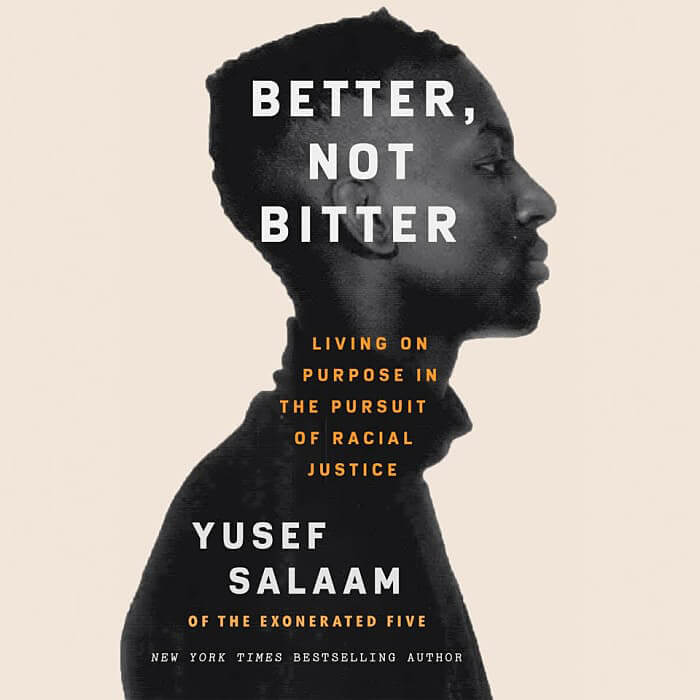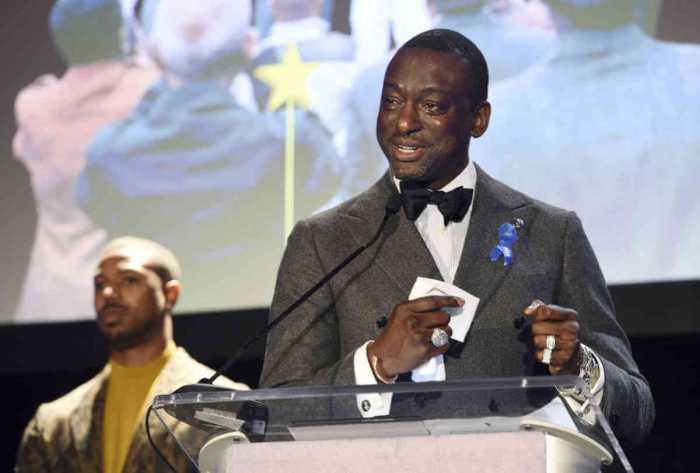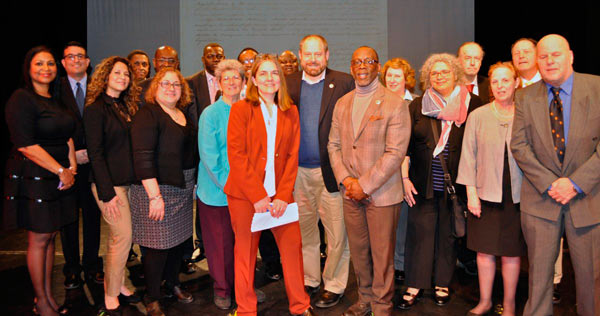Call it chance, fate, destiny or plain old redemption Yusef Idris Faadel Abdus Salaam has more than a few words to explain his life’s journey.
Fact is an abbreviated form of the name targeted Yusef Salaam a “wilding” “rapist” criminal teenager who with friends almost murdered a 28-year-old white woman.
Many might recall his notorious emergence on the front pages of New York’s four leading newspapers April 1989 as the tallest of teens caught in a dragnet by the NYPD with Korey Wise, Antron McCray, Kevin Richardson and Raymond Santana racially profiled as guiltless abusers dubbed the Central Park Five.
Salaam was 15 years old.
He mustered more than words but sentences and paragraphs to compile a 285-page book he titled “Better Not Bitter.”
Media consensus concluded Salaam and cohorts raped, assaulted and left jogger Patricia Miele near dying in a wooded area of the Manhattan expanse.
While the other teenagers delivered coerced confessions, Salaam with guidance from his fierce and relentless mother, Sharonne remained close-mouthed in defiance of the NYPD, the media, the Manhattan District Attorney, Donald Trump and theorists who were convinced the Black youths committed the heinous crime.
Although intimidating to the teenager, an interrogation room provided the kind of atmosphere police delighted in winning convictions.
Salaam lived at Schomburg Plaza, directly across from the sprawling green.
He referred to it as his backyard because there was where he skateboarded, rode to school and met with friends.
When he was told about the brutality that occurred there he was as appalled as many New Yorkers who awakened to the horrific news.
He said he was unaware of the tragedy and was shocked to learn he was a suspect.
New Yorkers were enraged, they wanted a fast resolution.
They needed a safe place to run, jog and walk their dogs.
It was up to the NYPD to bag the case with rapidity.
In a matter of days, one by one, they named five 14, 15 and 16-year-old Harlem youths the Central Park Five.
They were vilified, persecuted and convicted even before the 1990 trial.
Salaam’s Muslim faith might have been responsible for the Black and proud façade mother and child fortitude exhibited throughout the trial when they both walked daily into the Canal St. courtroom to defend their reputation.
It was evident that neither would bow to pressure.
Not from seething protests by members of the Guardian Angels, not from celebrity sympathizers of the jogger — who was revealed to being an investment banker — and most definitely not from the squeeze from $85,000 worth of full-page opinion ads placed by a tax evasive, accused sex abuser, science denying real estate mogul who became president.
Eventually as expected, Salaam and four Harlem teens were found guilty as charged.
One would imagine, that would be it.
Locked away for the rest of their youth, the case was supposedly closed.
Compelling evidence –a rock – introduced as similar to one used to bludgeon the unwary jogger; video-taped confessions – presented as voluntary admissions of criminal behavior, and without tangible evidence of DNA a jury decided the district attorney’s office presented a plausible and convincing case for conviction.
Throughout, Salaam maintained his innocence.
As fate would have it, in 2002, while in prison Matias Reyes, the real perpetrator confessed to Korey Wise, one of the convicted Central Park Five that he acted alone in beating and raping the victim.
His DNA matched proving him the perpetrator.
Such miracles rarely happen.
Not to Black men in America.
Rarely does the cavalry come.
In this millennium it did, Salaam is no longer one of the reputed Central Park Five, he has been redefined Exonerated.
In 12 chapters Salaam gives his side of the story; through each he tells harrowing tales of the mass incarceration system and the prison industrial complex which he believes traps Black and brown people through a life of revolving recidivism.
Salaam’s book continues a conversation filmmaker, Ava Duvernay started when she directed the 2019, award winning Netflix documentary “When They See Us.”
“Better Not Bitter” is Yusef Salaam’s account.
The book is fraught with lessons about systemic racism, white privilege, faith, ambition, determination, family, hope, miscarriage of justice and redemption.
The book is begging to become another enlightening film document.
There are at least four more perspectives to be written, this is one from a teen turned adult who believed that against all odds his religion, family and a caring village saved him from a destiny he was profiled to endure.
Check “Better Not Bitter” at Grandcentralpublishing.com
Catch You On The Inside!


























